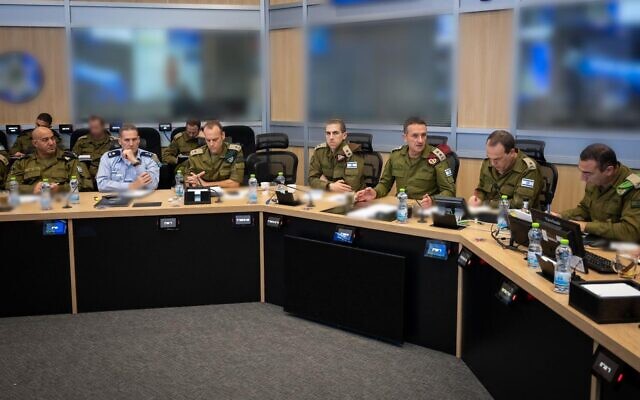On Wednesday, September 25, IDF Chief of Staff Lt. Gen. Herzi Halevi signaled the possibility of a ground assault into Lebanon. Addressing soldiers in northern Israel, he indicated that aerial bombardment is laying the groundwork for potential troop maneuvers into Hezbollah-controlled villages, which have been heavily fortified. Hezbollah’s expanded missile attacks, including a ballistic strike near Tel Aviv, have further escalated tensions. The development follows three days of intense Israeli airstrikes targeting Hezbollah positions earlier this week.
Israeli Prime Minister Benjamin Netanyahu affirmed the military’s commitment to return displaced residents to their homes, while Lebanon has reported over 615 casualties since Monday with thousands more injured and displaced.
International efforts to mediate the crisis have intensified, with U.S. President Joe Biden warning of the potential for all-out war but expressing hope for a diplomatic settlement. The U.S. is leading a new initiative that links the conflicts in Lebanon and Gaza, as Israel shifts its military focus north to confront Hezbollah.
Regional sources report on the developments:
Al Jazeera reported that in the escalation of violence since September 23, “more than 569 people, including 50 children and 94 women, have been killed in Israeli air strikes across Lebanon.” Armed Conflict Location and Event Data, a non-profit that collects data on violent conflict, shows that “at least 10,214 attacks were exchanged between Israel and Hezbollah and other armed groups in Lebanon from October 7 to September 20,” and that “about 81 percent of these attacks – 8,313 – were carried out by Israel, which killed at least 752 people in Lebanon.”
“Israel has expanded the zones it has been striking since Tuesday night, with attacks for the first time on the beach resort town of Jiyyeh just south of Beirut and Maaysrah,” shared Al Arabiya. The source added that “as many as half a million people may have been displaced in Lebanon,” and that “in Beirut, thousands of displaced people who fled from southern Lebanon were sheltering in schools and other buildings.”
Lt. Gen. Halevi stated on Tuesday morning that, after a military assessment, “Israel will be further escalating its actions against Hezbollah.” The Times of Israel quoted him further: “Hezbollah must not be given a break. [We must] keep working with all our might…We will accelerate the offensive operations today and bolster all the arrays. The situation requires continued intensive action on all fronts.”
The Jerusalem Post covered the efforts by the United States and France to prevent any further escalation by proposing a “temporary 21-day ceasefire between Israel and Hezbollah.” French Foreign Minister Jean-Noel Barrot told the United Nations Security Council: “We are counting on both parties to accept it without delay in order to protect civilian populations and allow for diplomatic negotiations to begin.” Barrot claimed the proposal is “a demanding path, but it is a possible path.”
Commenting on the effects of the Israeli strikes, the UN High Commissioner for Refugees said “the devastating bombings in Lebanon are claiming the lives of innocents and forcing thousands to flee,” and “the losses inflicted on civilians are unacceptable.” Furthermore, Maj. Gen. Mohammed Khair, chief of the Lebanese High Relief Commission, called on “Arab and foreign countries, international organizations and expatriate businessmen to assist the displaced and provide aid to Lebanon during these challenging circumstances,” according to Arab News.
Ahram Online outlined Israel’s response to multilateral efforts to stop the escalations, noting that Israel “ welcomed diplomacy on Lebanon but vowed to pursue its goal of degrading Hezbollah.” The source contrasted Israel’s stance to that of Iran, who shared they have “held back on retaliatory strikes on Israel after attacks targeting Iranian interests,” but following the strikes on Lebanon, they “may no longer be restrained.” Iranian Foreign Minister Abbas Araghchi warned that “the region is on the brink of a full-scale catastrophe. If unchecked, the world will face catastrophic consequences.”
